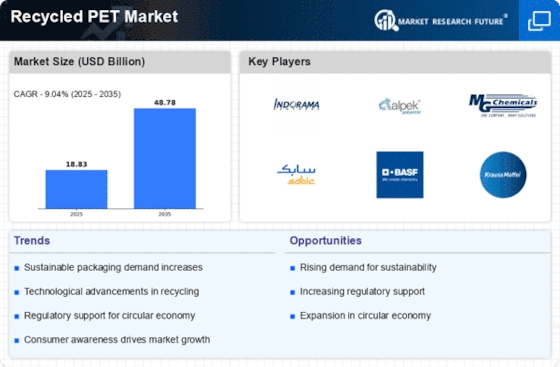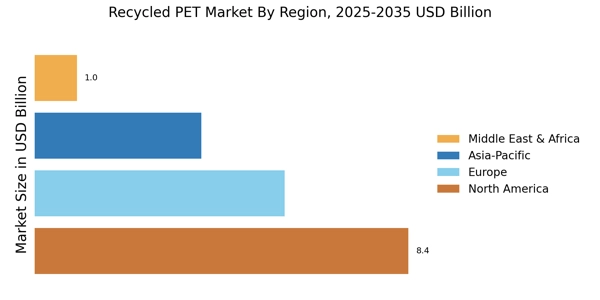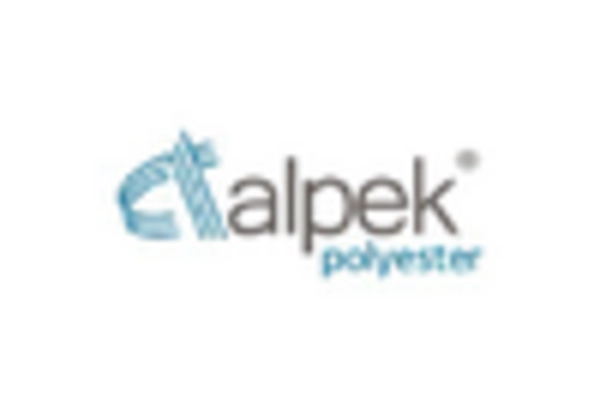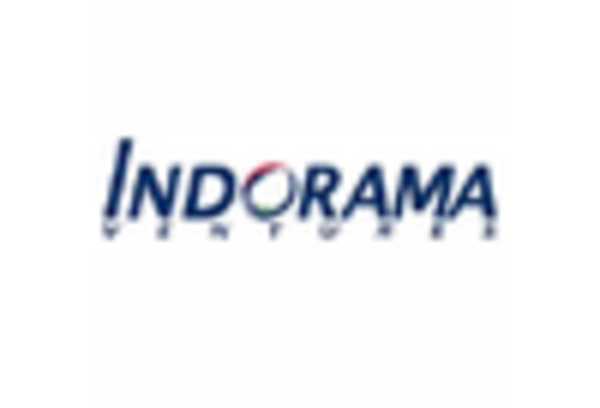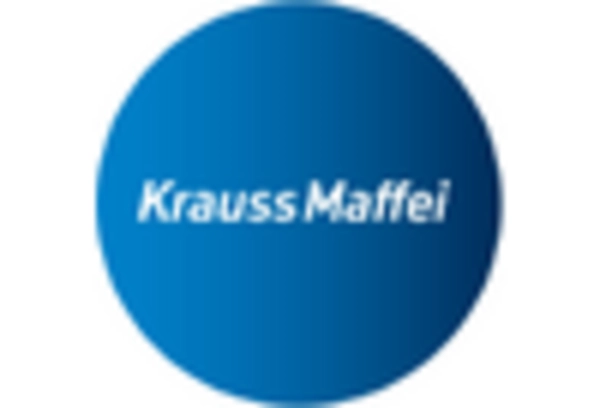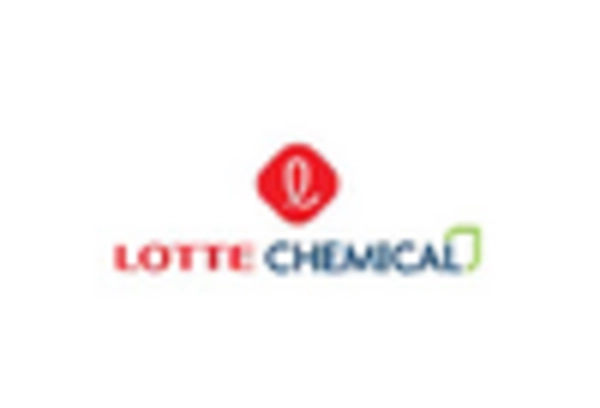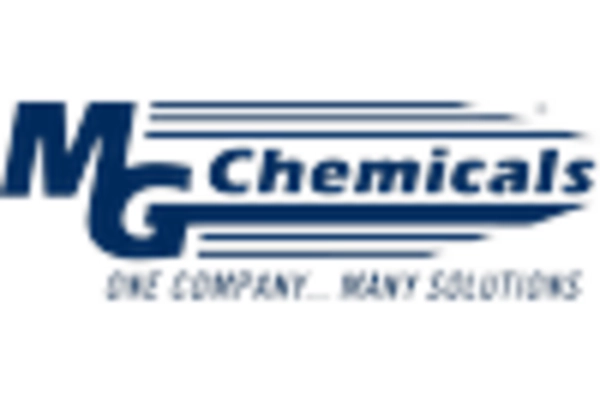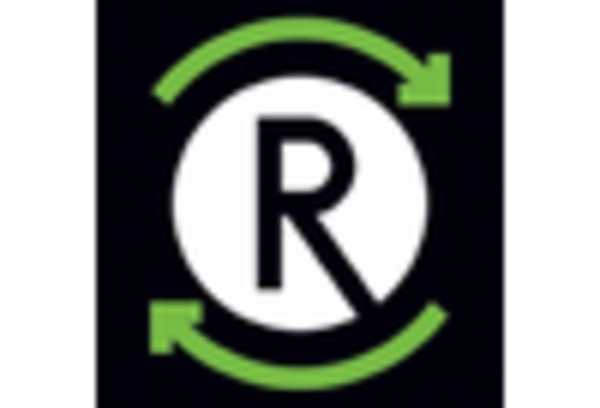Corporate Sustainability Goals
Many corporations are setting ambitious sustainability goals, which significantly impacts the Recycled PET Market. Companies are increasingly committing to using recycled materials in their products to reduce their carbon footprint and enhance their brand image. For instance, major beverage companies have pledged to use 50% recycled content in their PET bottles by 2030. This commitment not only drives demand for recycled PET but also encourages innovation in recycling technologies. As corporations strive to meet these sustainability targets, the Recycled PET Market is poised for substantial growth, potentially reaching a market value of several billion dollars in the coming years.
Government Regulations and Incentives
Government regulations and incentives play a crucial role in shaping the Recycled PET Market. Many governments are implementing policies that promote recycling and the use of recycled materials. For example, extended producer responsibility (EPR) laws require manufacturers to take responsibility for the entire lifecycle of their products, including recycling. Such regulations encourage companies to invest in recycled PET, thereby increasing its market share. Additionally, financial incentives for recycling initiatives can further stimulate growth in the Recycled PET Market. As these regulations become more stringent, the demand for recycled PET is likely to rise, fostering a more sustainable economy.
Technological Innovations in Recycling
Technological innovations are transforming the Recycled PET Market by enhancing the efficiency and effectiveness of recycling processes. Advanced sorting technologies and chemical recycling methods are being developed to improve the quality of recycled PET. These innovations not only increase the yield of recycled materials but also reduce contamination levels, making recycled PET more appealing to manufacturers. As technology continues to evolve, the Recycled PET Market is expected to benefit from lower production costs and higher quality products. This could lead to a broader acceptance of recycled PET in various applications, including textiles and packaging.
Consumer Demand for Sustainable Products
The Recycled PET Market is experiencing a notable surge in consumer demand for sustainable products. As awareness of environmental issues increases, consumers are actively seeking products that utilize recycled materials. This shift in consumer behavior is driving brands to adopt sustainable practices, thereby increasing the demand for recycled PET. According to recent data, the market for recycled PET is projected to grow at a compound annual growth rate of approximately 8% over the next five years. This trend indicates that companies prioritizing sustainability in their product offerings are likely to gain a competitive edge in the Recycled PET Market.
Rising Awareness of Environmental Impact
There is a growing awareness of the environmental impact of plastic waste, which is significantly influencing the Recycled PET Market. As consumers and businesses recognize the detrimental effects of plastic pollution, there is an increasing push towards recycling and the use of recycled materials. This heightened awareness is prompting companies to adopt more sustainable practices, including the use of recycled PET in their products. Market Research Future indicates that the demand for recycled PET is likely to increase as more stakeholders prioritize environmental responsibility. Consequently, the Recycled PET Market is expected to expand as it aligns with the global movement towards sustainability.


